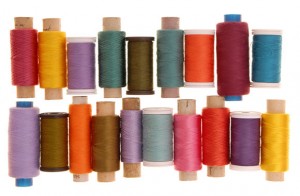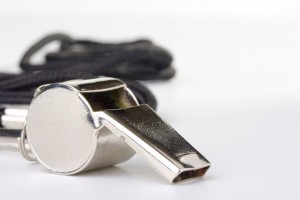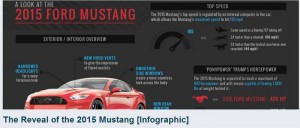What do corporate giants do when they find themselves in a challenging PR situation and in a financial quandary? They have to be very, very careful on how they handle the situation and with what information they divulge to the public. Opinions may vary, facts may be questionable, but any company will want to be represented in the most fair, and in the most accurate way as possible.
Yes, when a company finds themselves in a negative light, they want to tell their side of the story too. This is primarily why corporations have dedicated media relations departments and journalists, specifically to share information about their company. Chevron found themselves in a “situation” regarding the incident in Ecuador, and has been sued, forcing them to pay damages for allegedly contaminating the Amazon rainforest. Obviously, Chevron has another side of the story, and they want the public to know about it.
Media Representation
In many cases, corporations have a very hard time getting the media to listen, let alone believe, their side(s) of a story. But in this case with Chevron, they decided that they would forgo any risk of getting their side wrong, so they hired their own “voice” to represent them. Curious? Not if you want to portray accuracy and fairness from your own company’s perspective.
Representing your corporation in the media can be tricky. It seems that if there is any bad news circulating, it seems to get worse once it gets into the hands of the media.
Does this mean that the media is wrong or bad? No!
Does it mean that the media doesn’t accurately report their stories? Absolutely not!
What it does mean is this: everyone, including the media, has an opinion about a story and even about a set of facts. Their job is to present their opinion, or rather, their side(s) of the story in whatever light of information that is available. In other words, just because the facts are there doesn’t always mean that an entity will receive fair and accurate reporting. Remember that dedicated media relations department mentioned earlier? Well, this is where it becomes beneficial to the company.
Your Own Voice
Chevron, surely by being somewhat overwhelmed, enlisted the services of their own PR person, Gene Randall, to present their side of a controversial story. Mr. Randall, who is also a former CNN correspondent, acted on behalf of Chevron and gave a report about the Ecuadorian situation a couple of weeks just before a negative report was given by CBS’s 60 minutes.
Although both reports are conflicting in nature (in facts and opinion), Chevron’s whole goal was to be able to represent themselves in the way that is going to benefit their company and further their mission. Is that alright? Isn’t that what companies are supposed to do?
The Solution: What Chevron is Doing
What do you do if your corporation is attacked in the media? How do you approach a sensitive subject with tact and professionalism, but still convey to your market what really happened without a complete conflict and breakdown in communications? You must protect your corporate entity at all costs. A company’s reputation is like an individual’s reputation. They can be scarred and ruined with bad, incorrect or misleading ideas or information.
Chevron is using a variety of techniques and channels to get their side of the story across in a number of different ways:
1. Videos
The video above is on YouTube, so it would appear in any searches on this topic in that channel. Having this video available allows for both the positive and the negative sides of the story to appear together. Also, Chevron has a dedicated site (http://www.texacoinchevron.com) that allows them to publish their side of the story.
2. Twitter it!
Chevron has an official Twitterer (@Chevron_JustinH), who is presumably monitoring this topic closely. Also, the search results for a variety of searches with keywords of Chevron, Texaco and Ecuador return with both sides of the story. This indicates that Chevron may have search optimisation experts who are working to ensure that their side of the story is highly ranked.
These things to me sound like a fair, responsible company who is working to ensure that equitable and balanced treatment is enacted, for both parties.
What Else?
Yes, there are times when the corporation will be wrong. And yes, there are times when the media will have gotten it wrong too. But if a company ensures that they have systems in place to represent them accurately, positively or negatively, then the challenging part is under control. They can then concern themselves with other things like marketing and customer retention and running the corporation. There will always be opinions flying. Just make sure the facts are there and accurate, and there will be no worries over who said what.
What else could Chevron have done or should do to further publish their side of the story? I would love to know your views on how you feel that Chevron is communicating their position in this controversy. But, be nice.
I am a freelance writer, blogger and professional motivational speaker. I primarily focus on business content, offering my clients strategic marketing strategies for their businesses. I have been an entrepreneur for over 13 years, after having worked extensively in corporate America.



To me it looks like Chevron is just trying to downplay the whole thing, hide the truth and avoid responsibility. I watched 60 minutes piece about the contamination in Ecuador and Chevron’s spokesperson had a chance to tell their side of the story. She sounded unprepared and ridiculous. She compared oil in her makeup to oil in the oil pits that is killing those poor Ecuadorians!! If Chevron wasn’t hiding something, wouldn’t their side of the story be easier to be told and questions answered with no hesitation?
Also, here’s an interesting blog about the contamination: http://www.thechevronpit.blogspot.com
Anna, thank you so much for your honest comments and feedback. However, wouldn’t you say that it’s only fair if Chevron gets to tell their side of the story, and in the fashion they so choose?